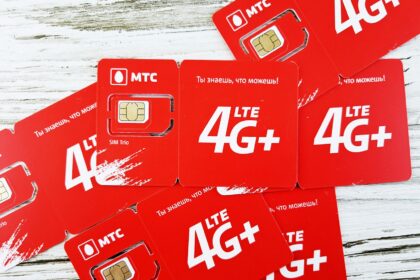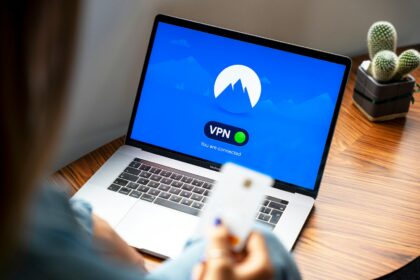Looking for a job in cybersecurity can feel like walking into a high-stakes game. Youve spent evenings studying, passed tough exams, and proudly pinned certifications to your résumé. Those letters after your name say more than you think. They signal that you understand networks, code, and the latest attack vectors. Yet one question lingers: do job recruiters actually verify cybersecurity certifications? Its a worry nearly every candidate shares, and for good reason. In the next few paragraphs well break down the hiring process, the tools recruiters use, and how your hard-earned badges fit into the bigger picture.
The Value of Cybersecurity Certifications
Cybersecurity isnt just another tech discipline; its infrastructure insurance for businesses, government agencies, and hospitals. When malware knocks at the virtual door, organizations want calm, trained people on the other side. That demand gives certifications real weight. A CompTIA Security+ badge might prove you can build a secure baseline, while a CISSP pin suggests you know governance inside and out. Different credentials shine in different spots, so research the gaps you want to fill. In tight job markets those badges also provide shorthand for busy recruiters, helping your application move from the pile marked maybe to the pile marked interview.
Certifications are important. They provide a standardized way. They measure knowledge and skills. They are often required for many cybersecurity roles. They show a commitment to the profession.
The Recruiters Initial Scan
Job recruiters are extremely busy. Each week they sift through hundreds of resumes. To keep up, they lean heavily on Applicant Tracking Systems, or ATS. These programs search for key buzzwords and phrases. Certifications pop up near the top of that list. If those words appear, the ATS gives the resume a thumbs-up. The flag then passes to a human, and that human spends only seconds on it. In this moment, all they do is check whether the certification name shows up. They do not look online to prove it-still a bit further down the road.
Picture the process like speed-dating for resumes. The recruiter glances at each page, looking for easy signs of promise. Certifications give them those signs almost instantly. They save time and help separate the maybe piles from the definitely piles. Efficiency rules the stage, not deep scrutiny. So do job recruiters actually verify cybersecurity certifications at this very first step? Not really. The serious verifying comes later when they really want to talk to you.
A while back, a friend of mine told me about his job hunt for a security analyst position. He came to the interview table carrying a CISSP badge, one he made sure to spotlight right at the top of his resume. When the recruiter reached out, her voice was warm and quick, and she flat-out said that his certification was a big reason he passed her first cut. At that early stage she did not ask him to pull out the certificate or show any badges online; she simply noted the credential and kept moving.
The truth, though, was that the verification still lay ahead. For most companies, checking what a candidate claims starts off light and grows heavier as the process rolls on. If you sit through a phone screen, your qualifications are already on their radar; if you find yourself in an actual interview room, they regard you as a serious contender and the itch to dig deeper gets stronger. Land a written offer and the checks can feel almost inevitable, because organizations in our field live and die by trust. They need to know that the people guarding their networks really earned the badges they flash.
Background Checks and Due Diligence
Most employers today rely on outside firms to run background checks. These checks dig into several key areas. They look at school diplomas and degrees. They verify each place you said you worked. They even look at licenses and special certificates. Formal validation is usually done by calling the issuing agency. The verifier gets an official yes or no for each claim. Professional fields lean on this process, and cybersecurity is no different. In fact, the security sector often pushes for an extra layer of care.
When a job puts sensitive data in someone’s hands, scrutiny goes up even more. Positions tied to critical networks or even national defense see the deepest dives. These checks move far beyond verifying a title or date. Recruiters want proof the person is honest and skilled. They want to shield the company’s assets and, where needed, the public interest. The question do job recruiters actually verify cybersecurity certifications often arises in these rigorous checks. Because of that, the question is rarely whether the certification was checked; it is whether the person can be trusted with everything that certificate promises.
You will see verification efforts show up more often when:
- The interview rounds are nearly finished.
- The role is senior or has niche expertise.
- Clearances from a government agency are on the table.
- The employer lives by strict rules or audits.
Methods of Verification
So what tools do backgrounders pull from the shelf? There are several, each going to a different depth of detail. Hiring teams or their contract firms lean on these options to double-check your story.
1. Online Verification Portals
Most certifying organizations now run their own web lookup tools. CompTIA’s site works this way. So does ISC2’s portal for CISSP holders. Your certification number is the only detail they usually need. That lets a recruiter or background team pull the record instantly. They see whether the badge is live, when it was granted, and if any renewals are due. Because it takes seconds, this method has become the go-to and is widely expected. So when people ask whether do job recruiters actually verify cybersecurity certifications online, the answer is yes, almost every time.
2. Direct Contact with Certification Body
In rare cases an employer may still reach out to the issuer directly. They are less likely to do this for every single applicant in a large hiring wave. Instead it tends to happen if a record looks off, if two dates do not match, or if the portal shows an error. When that uncertainty appears, a simple email or quick phone call can clear the matter. The extra step definitely slows things down, yet gives the firm absolute confidence the credential is real.
3. Requesting Certificates from Candidates
Some recruiters simply ask you for a copy. They might want a digital file or a crisp scanned image. Its a fast way for them to glance at your credentials. However, asking for a snapshot is not true verification. A candidate could easily fake a certificate that way. Because of that, the request usually serves as an early filter, not the final say. The real checking still happens once a background team digs in.
A colleague of mine once chased a government cyber job. For that role the panel wanted every scrap of proof in long, bookmarked PDFs, not just cover notes. Then outside investigators spent weeks matching each document to its issuer. It was slow but he never doubted why- the job sat at the heart of national security.
Why Some Recruiters Might Not Verify (Immediately)
You might hear stories from friends whose badges were never checked at all. That does happen more often than you think and for several reasons. It does not mean your certs are useless. It just signals that every hiring team wanders its own path.
Time and Resource Constraints
Recruiters are busy juggling multiple openings, each with its own urgent deadline. With a steady queue of applicants and only so many hours in the day, checking every certification for every candidate quickly turns into a full-time job of its own. For most entry-level positions the team usually skips the deep dive and leans on a quick chat, a coding quiz, or the hopeful assumption that people tell the truth. Only when a candidate makes it to the final round does anyone pull out the official transcripts and double-check those credentials.
Focus on Experience and Skills
No one denies that certifications matter, yet on most teams work history and hands-on skill still carry more weight. A well-run technical interview or a live build exercise can reveal whether a person knows how to defend a network long before the wall of badges ever comes into view. Because of that many recruiters ask themselves, “Can this candidate solve problems on Monday morning?” and answer the question with a thumbs-up instead of an audit of the candidate’s certs. In the end practical ability nearly always steals the spotlight that verifications rarely get.
Company Policies Vary
Each business does its hiring a little differently. Some firms stick to rigid rules that leave no room for doubt. Others take a laid-back approach and move quickly, especially if they are short on time. Very small startups may skip the deep dive for reasons of cost, while a Fortune 500 may spend weeks poring over records. The field involved also matters. Finance and government jobs typically demand a thorough review, maybe even a security clearance. On the other hand, many tech startups care more about creative problem-solving than about a long list of formal titles. Trust still sits at the center of every conversation, particularly in cybersecurity.
“Certifications get you in the door. Your skills and experience keep you there. And honesty is non-negotiable.”
The Candidates Responsibility: Be Honest!
Nothing beats plain honesty when you write your job application. Never lie about a badge you never earned, never pad a title, and never stretch dates to look fresher than you were. The cyber world is tight-knit, and news travels faster than a new malware strain. Getting found out usually ends the offer and can taint your name for years. No position, no matter how high, is worth that kind of risk. Keep your story true, put in the real work, and let your skills and character speak for themselves.
If youre working toward a certification, its perfectly fine to mention that. Just add In Progress beside the title and move on. Doing so signals that youre proactive and serious about your field. Its a lot better than quietly claiming the badge you dont yet own. Recruiters notice that honesty, and many actually prefer it. Transparency counts in every part of your application-who you are, what you know, and how you behave. In cybersecurity, where trust is the currency, showing integrity up front speaks volumes.
Key takeaway: Even if you think do job recruiters actually verify cybersecurity certifications is a rare event, assume they will. Verifying credentials is not as rare as people hope. So, say only what is true. Protect your career, and your reputation will take care of itself.
Common Cybersecurity Certifications and Verification
Lets walk through a few of the big security badges everyone talks about. Well explore how firms normally confirm that you really hold each one. The table below captures the basics, but keep in mind that every employer may put its own spin on the process.
| Certification | Issuing Body | Typical Verification Method | Likelihood of Verification |
|---|---|---|---|
| CompTIA Security+ | CompTIA | Online portal (CertMetrics) | High, especially for entry-mid level jobs. |
| Certified Ethical Hacker (CEH) | EC-Council | Online portal | High. |
| Certified Information Systems Security Professional (CISSP) | (ISC)² | Online portal | Very high, often required for senior roles. |
| Certified Information Security Manager (CISM) | ISACA | Online portal | Very high, for management positions. |
| Offensive Security Certified Professional (OSCP) | Offensive Security | Online portal | High for penetration-testing jobs. |
| GIAC Certifications (e.g., GSEC, GCIA) | GIAC / SANS | Online portal | Very high, highly respected and often verified. |
Most major cybersecurity badges now have clear ways to be checked. That transparency helps recruiters and background-check firms do their jobs faster. They can confirm a candidates claims in minutes. This is why the question do job recruiters actually verify cybersecurity certifications often has a positive answer.
The Impact of Verification-or Lack Thereof
So what happens if they check and find the truth? And what if they skip the check altogether? Either way, the candidates career path will be affected one way or the other.
Positive Impact of Verification
When hiring managers see verified credentials on your resume, the entire tone of the conversation shifts. Your listed courses, exams, and badges no longer look like hopeful bragging; they become independent proof of your skill. That level of third-party confirmation eases doubts, fills gaps in the story, and strengthens the overall application. From the employers angle, the process is a quick risk filter. In one click they learn that you really passed that exam or completed that boot camp. Nowhere is that assurance more welcome than in cybersecurity, where a single ill-informed hire can cost millions and ruin systems. Add in an extra layer of verification, and your profile suddenly feels heavier, harder to ignore, and vastly more appealing.
Negative Impact of Failed Verification
A lied-about certificate changes from a harmless embellishment to a career nuke the moment a background check flags it. Once the truth rises, expect the offer letter to vanish before the ink has dried. Worse, many employer databases keep long memories. A red mark beside your name can chill not only that opportunity but every future opening at the same firm. That rippled damage spreads through references, networking contacts, and even public forums, poisoning your professional reputation in a field already skeptical of outsiders. Cybersecurity people swap stories and warnings faster than malware. Get labeled a fabricator and you may spend years climbing back to even a shred of trust. Protection on that front is simple: always let your real path, however modest, be the only thing employers see.
There once was a job hopeful who listed a top-tier security cert on his resumé. The opening was for a very senior position, so the claim landed on recruiters desks with great interest. During the routine background check, though, the credential couldnt be confirmed. After some digging, it emerged that hed sat through an expensive training course but had never booked the real exam. The company yanked the offer the same day, and the candidate learned a hard truth about honesty.
Beyond Certifications: What Else Matters?
Certs still count, no doubt, yet they tell only part of a larger story. Hiring teams scan for wider evidence, because cyber work touches so many duties and pressures. They seek someone who not only knows the tools but also gels with colleagues, grasps business goals, and fixes messy, unpredictable problems that no lab exercise ever rehearsed.
Experience is King
Credentials shine on paper, but nothing beats the grit gained in the trenches. Have you triaged alerts in a Security Operations Center? Played the friendly hacker in a pen test? Tweaked firewalls or hunted malware after hours? These day-to-day tasks prove you can turn theory into action, handle pressure, and start adding value from the first handoff. Short on full-time gigs? Chase an internship, volunteer, or simply build a small home lab. Every packet captured and log analyzed builds the hands-on muscle that matters most in this field.
Soft Skills Matter More Than You Think
When people picture a cybersecurity pro, they often picture someone hunched over a monitor, writing code, and hunting for hackers all alone. The truth, however, is that the job demands far more than finger speed and terminal shortcuts. Clear communication is needed to translate fiery technical talk into plain language for, say, the finance manager scared of phishing scams. Steady problem-solving comes into play when an alert lights up at midnight and the team must quickly sort real intruders from harmless bugs. An easy-going attitude during high-pressure outages can be the difference between calm fixes and a wasted afternoon of shouting and server reboots. Because of situations like these, interviews spend as much time probing your people skills as your toolbox of firewalls and scripts.
Show and Tell with Projects
Certifications definitely help, yet a stack of badges on a résumé still falls flat if it does not point to something real you have touched yourself. That is where a solid portfolio slips in as secret sauce. Maybe you spun up a home lab that slammed head-on with a local malware sample to see what would stick (spoiler: thank virtualization). Perhaps you rustled together a password manager, wrote up step-by-step notes, and dropped the whole kit onto GitHub for someone else to burn in. Such small-but-sticky projects give recruiters quick, hands-on proof the theory you studied past midnight has survived daylight reckoning. They also scream ownership—when nothing is graded and no boss is looming, only curiosity pushes you to learn more code, more networks, and more obscure RFCs no one cares about.
Learn Today, Forgotten Tomorrow
Staying ahead in cyber means replacing the word graduate with the phrase daily newsletter. New zero-days, fresh vulnerabilities, and quirky attack vectors pop up before yesterday’s breakfast goes cold. True pros carve out time to nibble on blog posts, skim Twitter feeds, and live-stream conference sessions even when the calendar threatens to drown them in meetings. Slowly but steadily that streaming flow builds a mental library sharper than any college textbook. More important, hiring managers notice the habit and file you away as the candidate most likely to spot tomorrow’s headache today.
Final Thoughts on Verification
So, do job recruiters actually verify cybersecurity certifications? In short, yes. They almost always look harder for mid- and senior-level openings, especially when sensitive data or assets are involved, and that cross-reference usually pops up at the tail end of the background-check process. Its part of the basic due-diligence playbook that keeps companies from bringing in applicants who might turn out to be more talk than talent.
The safest game plan, then, is to stick with the facts, build real know-how, earn every badge the honest way, and protect your good name. That simple routine will keep opportunities coming and save you the headache of cleanup later. No need to count on luck or cross your fingers that a recruiter skips the verification step, so go ahead and act as if they willbecause chances are they already are. If you lean on integrity and effort today, youll find a seat at the cybersecurity table tomorrow, a field that desperately needs dependable experts.
“In cybersecurity, trust is currency. Certifications are a proof of competence, but integrity is the foundation.”
























